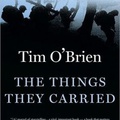Bret Easton Ellis: The Rules of Attraction

In the last ten or so years I read all of Bret Easton Ellis’s work, actually, I think I read all his books more than once. But I don’t think I read them first in the proper order – if there is such a thing as a proper order. I recall that I first read The Rules of Attraction after American Psycho, and I guess it would have been better to read them in the other way around. Anyway, as I didn’t really remember the novel anymore, I thought I’d reread it.
The thing I like the best about this novel is its title. I think it’s exceedingly suggestive, beautiful, mysterious and it conveys sensuality and intimacy. As regards the story, however, it’s not worth going into details, as the novel doesn’t feature any kind of linear storyline whatsoever. As it is, the events of the novel center around three main characters (Paul Denton, Sean Bateman and Lauren Hynde) and several minor characters who get into various emotional and sexual relations with one another while living the boring life of rich elite university students and working hard to drug and drink themselves to death.
What makes the novel interesting despite all this is the narration. (Of course this is one of my several hobby-horses: I love virtually any novel that employs a tricky narrative technique.) Every episode in the novel is told in the first person by one of several characters (mostly by Paul, Sean or Lauren), and most episodes are told by more than one narrator. This way we get highly personal accounts of the events and the way they affect the narrator, and we also run into a lot of intriguing ambiguities concerning the „true” meaning of a specific party or date: an evening a character considers life-changing may only be a dull couple of hours for another one, or may feel for him or her as if it didn’t happen at all.
This kind of storytelling suits Bret Easton Ellis’s cold and detached world admirably. Ellis lets each of his characters tell their own version without superimposing a definitive meaning above their different interpretations. He doesn’t attempt to convince the reader of the truthfulness of any version, and I can really appreciate it if a writer lets his readers fend for themselves and doesn’t feel the need to explain and interpret everything.
The narration is excellent end greatly enjoyable, but the characters themselves are quite easy to forget. What lends them charm is that some of them reappear in other Bret Easton Ellis novels. Sean Bateman is, of course, the brother of the infamous Patrick Bateman, and as I recall, Lauren Hynde also appears in some other novel of Ellis, though I don’t remember in which one. I tend to think that the characters are uninteresting because in fact, they don’t have any personality or any distinguishing character traits worth mentioning. In The Rules of Attraction everyone is a tanned, sexy, muscular, beatiful demi-god, and though everyone is quite heartbroken when they find that their current romantic interest prefers someone else’s company, usually they easily manage to find a substitute with whom they can forget, as they are mainly interested in the body of the other person, and one body can easily be substituted for the other, since each is perfect.
Only one character seems to be an exception to this rule. There’s a girl in the novel who keeps sending love letters to Sean, and finally commits suicide as she realizes that she will never get the boy of his dreams. But even in her case, it’s not at all obvious whether she kills herself because she sees something in Sean other than his body, falls in love with his soul, and therefore cannot be satisfied with someone else, or because she is a misfit in her surroundings and simply cannot accept the fact that it is only the exchangeable body that matters and it’s naive and ridiculous even to think about such things as a soul.
By the way, because of the weightlessness of the characters and the lack of story, The Rules of Attraction is not the kind of novel to get lost in. While reading the book, I sometimes simply drifted over the pages, just like the characters drift in their lives, and I feel that this was a fine way to read this novel. And even though I don’t think that The Rules of Attraction measures up to American Psycho, which was the subsequent novel in Ellis’s œuvre, in the proper state of mind it can be quite a shocking read: it is appalling to face the emptiness which can exist within the human heart.





